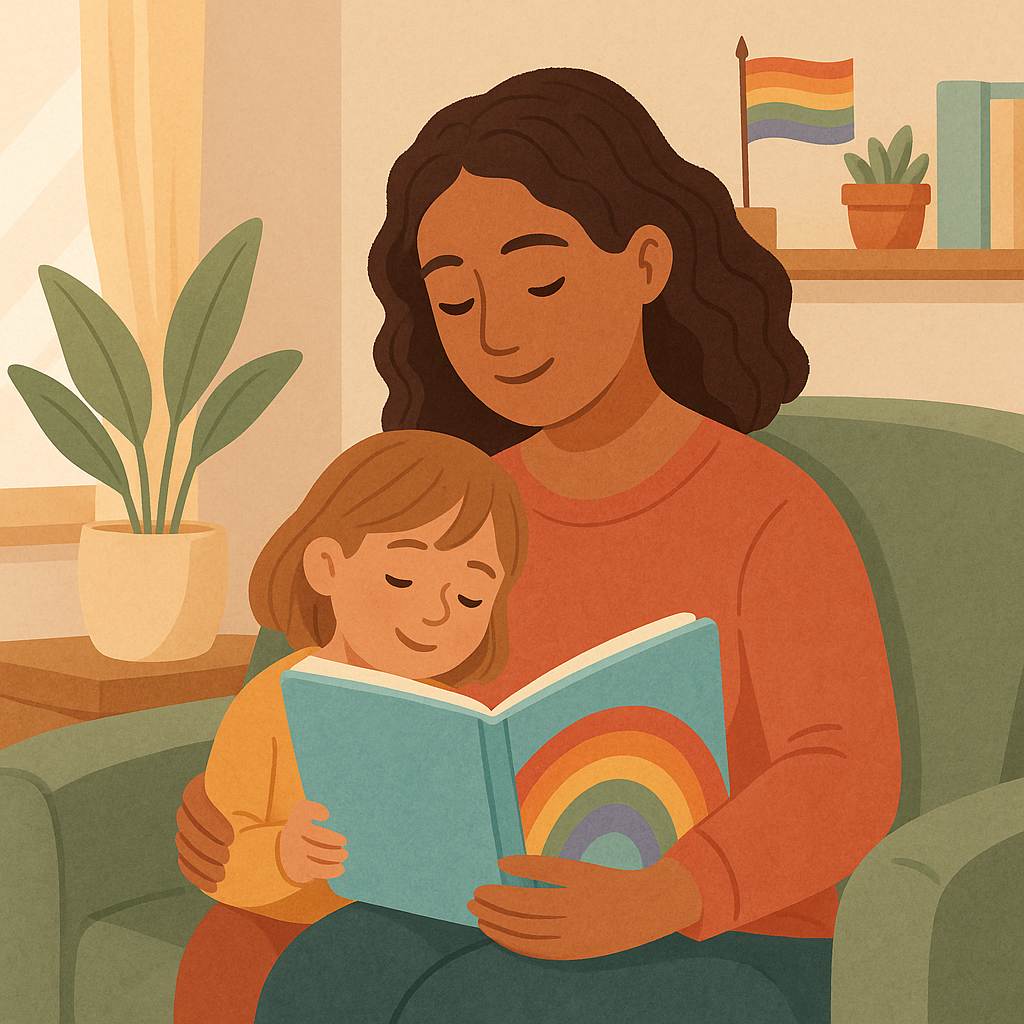Motherhood already feels like juggling glitter with one hand and groceries with the other. Adding “perfect ally” to the list? Overwhelming. The good news: allyship isn’t another chore—it’s a mindset woven into moments you’re already living. Below are gentle, practical ways to nurture inclusion at home (and why that matters for mental health).
1. Start With Storytime
Swap one bedtime favorite for a children’s book featuring LGBTQ+ characters or diverse families. Seeing themselves—or their friends—reflected on the page normalizes difference and sparks empathy.
Anchor-text suggestion: “Browse our therapist-approved book list for kids exploring identity” → link to Seven Stones Mental Health blog once published.
2. Use Everyday “Teachable Seconds”
When a TV show introduces a queer character or your child hears “That’s so gay” at school, hit pause (literally or figuratively). Ask open-ended questions: “How do you think they felt?” Empathy builds faster when kids name emotions in real time.
3. Practice Pronoun Play
At dinner, invite everyone to share their name and pronouns—parents included. It may feel silly the first time, but it signals that identity is respected and fluid conversation is welcome. Bonus: it prepares your child to advocate for peers who use different pronouns at school.
4. Celebrate Micro-Moments of Inclusion
Break big concepts into snack-size habits:
-
Replace gender-specific compliments (“You look pretty”) with skill-based ones (“You look proud of that outfit!”).
-
Offer rainbow-themed stickers for chores this month.
-
Wear a subtle Pride pin on errands—kids notice your quiet signals of solidarity.
5. Screen Your Media—Together
Curate age-appropriate shows or YouTube channels that center queer voices. Then co-watch the first episode so questions have a safe landing pad. Shared media builds a common language, reducing the “otherness” of LGBTQ+ narratives.
6. Know When to Bring in Backup
If your child—or you—needs deeper support, connecting with an affirming therapist can transform curiosity into confidence.
Anchor-text suggestion: “Meet our LGBTQ+ affirming clinicians” → link to Alfrey & Pruitt Counseling service page.
Why This Matters for Mental Health
Research shows LGBTQ+ youth with at least one supportive adult are 40% less likely to attempt suicide than peers who lack that safety net. Your everyday choices literally save lives and model inclusion for the whole family.
Gentle Call-to-Action
-
Want a deeper dive? Read “What Makes a Therapist LGBTQ+ Affirming?” on Seven Stones Mental Health for expert insights.
-
Explore Alfrey & Pruitt Counseling’s affirming therapy options if your family could use an extra layer of support.
Because allyship isn’t a project; it’s parenting with open arms—365 days a year.



